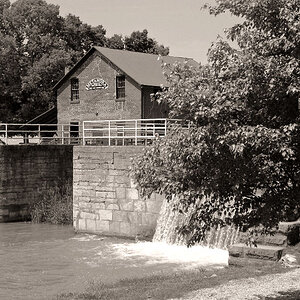dEARlEADER
TPF Noob!
- Joined
- Apr 9, 2008
- Messages
- 1,312
- Reaction score
- 1
- Location
- Canada
- Can others edit my Photos
- Photos OK to edit
I've seen chatter from forum members (especially Bifucator) about the high failure rate when backing up images to DVD. I typically store my files on a main drive + external usb drive + plus at the end of the month burn images to DVD. All hard drives fail over time, but I thought I was protecting myself from this by doing the DVD thing. I have never tested the integrity of my DVDs other than the mini self test that is performed at the end of the burn.
A quick google of "dvd failure rate" seems to bring up a lot of non scientific forum stuff. So, I was wondering about peoples experience and advice here.
1. For the people intenstively using DVD's what is your rough percentage of failure rate?
2. Is there anything you do to minimize failure, such as burn at a slower rate?
3. Is the failure of the DVD instint? or can the DVD lose information over time? (when I mean failure over time, I am assuming stored in proper conditions and not being used)
4. Is there any particular Drive or DVD brand you use for its integrity?
5. Do you have any links pertaining to this issue that include scientific independant lab testing? or any other trusted independant source?
6. What are the main reasons for the failure of burned DVD?
7. I've had a lot of commercial DVDs for years and never experienced any failures so I assume there is something different in commercial processing. Does anyone use a commercial service to back up DVDs?
Thanks... btw you don't have to answer all questions.. just the ones you are most experienced with...
A quick google of "dvd failure rate" seems to bring up a lot of non scientific forum stuff. So, I was wondering about peoples experience and advice here.
1. For the people intenstively using DVD's what is your rough percentage of failure rate?
2. Is there anything you do to minimize failure, such as burn at a slower rate?
3. Is the failure of the DVD instint? or can the DVD lose information over time? (when I mean failure over time, I am assuming stored in proper conditions and not being used)
4. Is there any particular Drive or DVD brand you use for its integrity?
5. Do you have any links pertaining to this issue that include scientific independant lab testing? or any other trusted independant source?
6. What are the main reasons for the failure of burned DVD?
7. I've had a lot of commercial DVDs for years and never experienced any failures so I assume there is something different in commercial processing. Does anyone use a commercial service to back up DVDs?
Thanks... btw you don't have to answer all questions.. just the ones you are most experienced with...




![[No title]](/data/xfmg/thumbnail/32/32940-461c74a1d3ad8d2862e02a293727c72a.jpg?1619735772)








